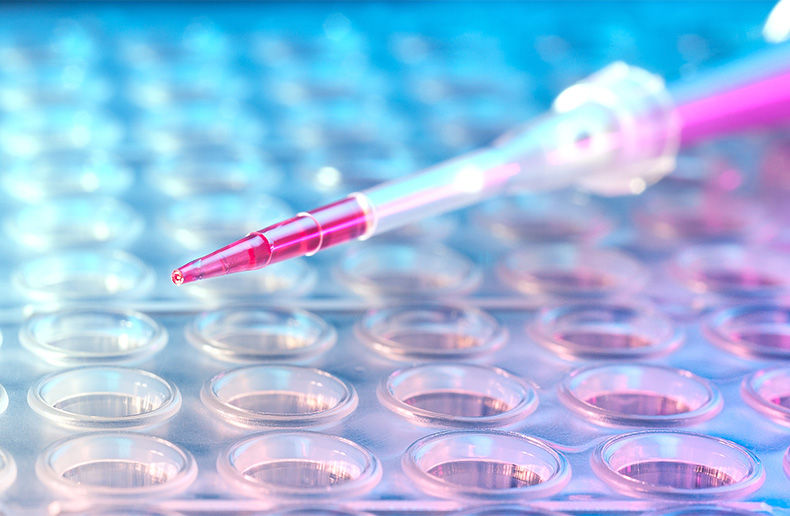In Canada, insurers are strictly prohibited from requiring a genetic test or sharing the results of such tests as a condition for obtaining an insurance contract. However, this hasn’t stopped online genetic tests from gaining immense popularity. Yet, buyers seem unaware of the sensitive personal information they are revealing about themselves and their families, and how it could be used.
The issue has become serious enough to warrant a symposium organized by the Faculty of Law at Laval University on October 12, 2023. Several academics from France participated, along with Quebec researchers. Overall, their observations were consistent: the tests have positive aspects but also several negative sides.
Various types of genetic tests
There are several types of genetic tests available to the public: ancestry tests to discover one’s origins and ancestors; health tests to know one’s predispositions for medical conditions and rare or complex diseases; paternity tests; and pharmacogenetic tests to understand how genes can influence drug responses.
Since the early 2000s, many companies have offered these tests. They can be done through genotyping, usually carried out by private companies because it’s less expensive, and sequencing.
According to Simon Girard, a genomics researcher at the Université du Québec à Chicoutimi, these consumer tests are as reliable as clinical tests. What differs significantly is their interpretation, which varies from one private company to another, leading to divergent predictions. “Some companies are more sensationalist and will release things that don’t make much sense,” he said.
People, however, are unaware of these facts, and the product has become very popular among the public. The American company 23andMe, which describes itself as the “Google of genetics,” had sold 16 million tests at one point. This quantity contains a wealth of information.
Moreover, all data obtained with these online tests are shared or sold, unbeknownst to their buyers, to other companies, such as pharmaceutical companies.
Predictions on ethnic groups
During the symposium, two French academics briefly raised concerns about genetic tests related to the insurance field, with surcharges or contract refusals for individuals who have taken these tests.
In Canada, the risk is virtually non-existent. The Genetic non-discrimination Act (GNDA), passed in 2017 and confirmed by the Supreme Court in 2020, prohibits companies, not just insurers, from requiring genetic tests or consulting their results before concluding a contract. Violating the GNDA can result in a fine of $1 million and imprisonment for up to five years.
When interviewed by the Insurance Portal on the sidelines of the symposium, Girard said he is not worried that insurers will try to circumvent the law someday.
“What concerns me,” he added, “is that predictions could be made about specific ethnic groups. For example, since you are a member of the First Nations or the Jewish community, it could be claimed that you have more predispositions and your premium could be adjusted based on your origin. This is already happening in other countries. However, these remain predictions that do not translate well to an individual. I see this as a danger, and I don’t think it’s sufficiently regulated from the point of view of public safety.”
The Washington Post reported on October 6 that a hacker had stolen 23andMe tests of people of Jewish origin and offered them for sale on the dark web.
The downsides of genetic tests
The disadvantages of online tests are numerous, especially in the absence of regulations on the invisible use made by companies that buy them for undisclosed purposes. Girard says that the interpretation of results obtained during clinical research forms a real fortress with strict rules to follow.
“In the private sector,” he added, “it’s a free-for-all. At the consumer level, there are no standards.”
Even ancestry tests, which seem harmless, are loaded with information. “Genetic tests are very talkative,” emphasized Claire Brunerie, a doctoral student at the Faculty of Law at Jean Moulin University Lyon 3.
For Ludovic Pailler, from the same university, their proliferation represents a threat to individuals’ privacy. He spoke of opacity regarding the results and was concerned about the right to be forgotten and erased for people who have ordered them.
Fabrice Rochelandet, from the Sorbonne University’s department of information sciences, pointed out that the data collected during these tests are sensitive and non-perishable. They can therefore cause harm for an indefinite period. He mentioned risks of erroneous medical interpretation as well as abusive or fraudulent use or dangers of discrimination.
Genetic data in the medical field
One of their most positive applications is in the medical and research fields. However, caution must be exercised with the predictive aspect of genetic tests, Girard emphasized.
According to him, lifestyle habits and the environment will weigh much more heavily in the development of certain diseases. Ultimately, it is not solely on the results of genetic tests that one should rely, but on all these factors.




